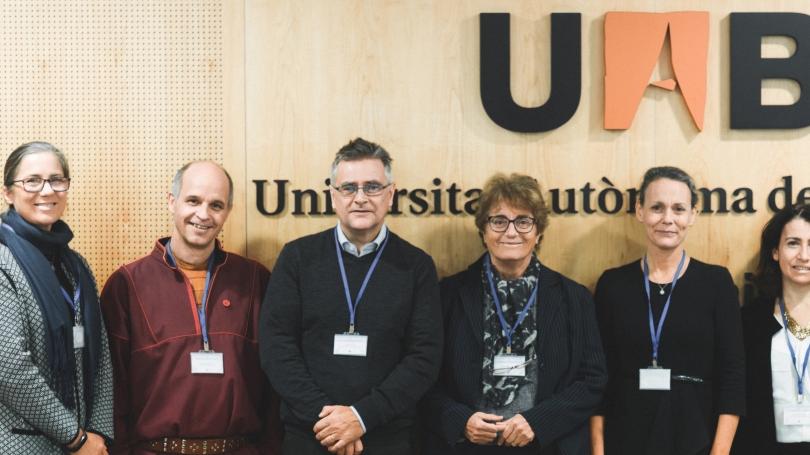Comparing the Arctic and the Mediterranean

Researchers at a new Arctic research institute in Spain conduct comparative studies between the Arctic and other regions.
Researchers in Barcelona spearhead research on interregional comparisons by bridging the Arctic with other parts of the world. "We want to compare similar trends in different regions and connect small communities with similar problems, for them to share experiences and develop strategies for the future", Professor Françoise Breton, the Director of the new CER-ARCTIC research centre, tells High North News.
Shared topics among communities in Arctic and other regions concern colonial legacies and the challenges posed by climate change and globalization.
CER-ARCTIC was inaugurated on 1 December 2017 at the Universitat Autònoma de Barcelona (UAB). The centre is the first of its kind in Spain and is directed by UAB Emeritus Professor Françoise Breton.
CER-ARCTIC will specifically conduct comparative studies of the Arctic, viewed as a sea surrounded by a diversity of countries and cultures, and the Mediterranean region. "Both share a high level of vulnerability to global changes, not only climatic, but also political, economic and cultural, with negative effects for local communities", Breton adds.
Focus areas: maritime tourism and marine protected areas
The two main social issues that CER-ARCTIC is comparing between the Arctic and other regions are maritime tourism and marine protected areas (MPAs).
Marine tourism is booming in the Arctic, with problematic social and environmental consequences, including for marine mammals and societies that rely on them. "The Mediterranean has a great deal of solid research, experience, and expertise to offer as how to cope with such developments", Prof. Breton says.
MPAs are quite rare in the Arctic but pressures of increasing exploitation, fishing, hydrocarbon extraction, shipping, and tourism activities are calling for robust and sustainable management arrangements. "This is also an area where there is much experience in the Mediterranean, and in other coastal regions such as Galicia, which can be of much value for governance design and implementation in an Arctic context", Breton elaborates.
Arctic people in focus
"Additionally, we want to respond to societal and cultural Arctic needs, making more visible the small local (indigenous and non-indigenous) communities and their rights on land and ocean uses, on wild animals and the commons, which are the foundation of many Arctic cultural identities", Breton emphasizes. "We try to explore the transformations underway in the Arctic considering how people who live there and who consider the Arctic as their home are affected by global impacts including climate change."
"There are global phenomena such as tourism and urban changes which greatly affect local populations. That is why CER-ARCTIC will conduct responsible research, with priority research lines which will be agreed upon with the people living in these regions", Breton continues. She points to the fact that many countries increasingly see the Arctic as a "warehouse of resources" rather than "a territory in which people live".
CER-ARCTIC is planning several international Arctic events in 2018 and 2019 to strengthen Arctic links with the South generally and the Mediterranean specifically.
